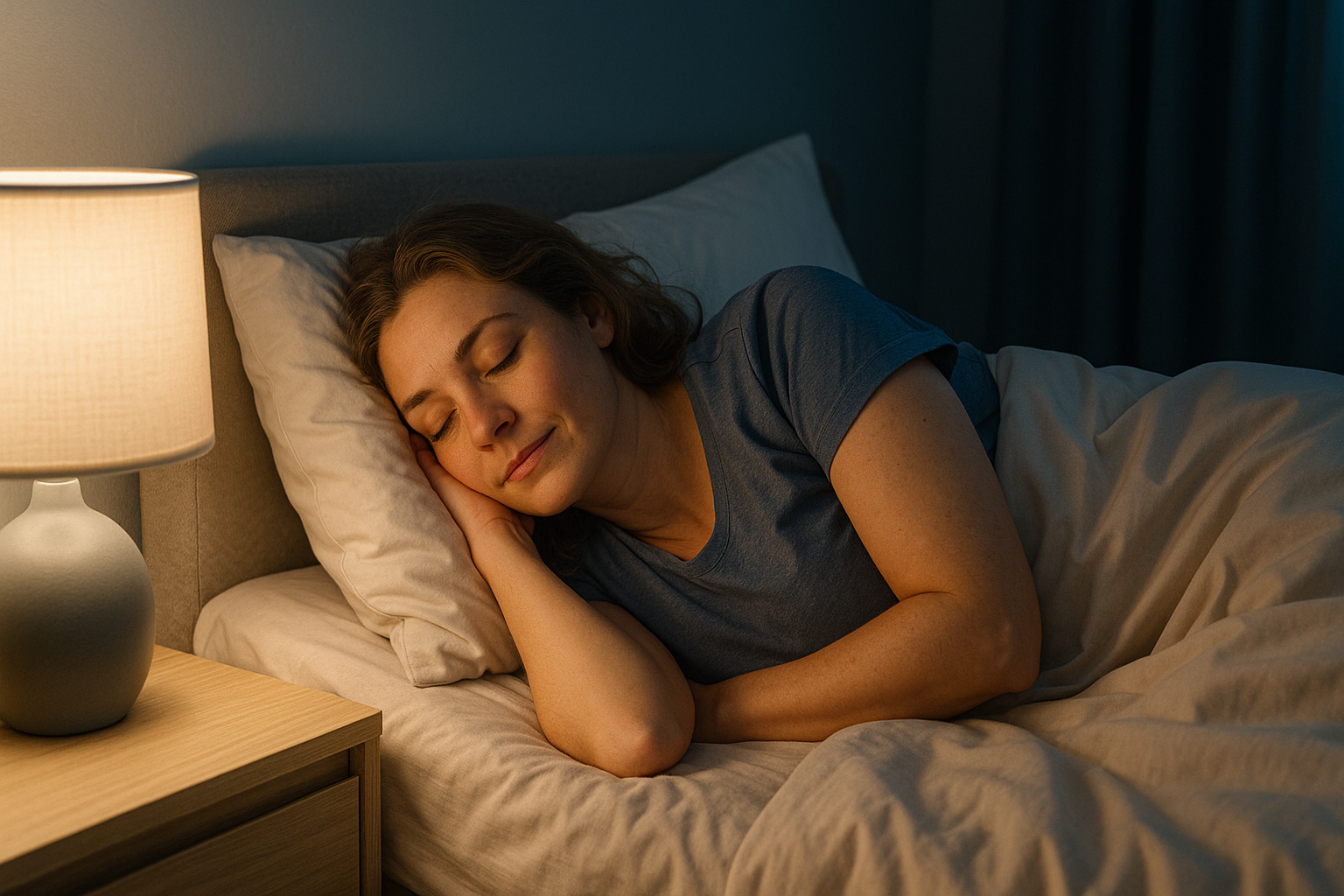Sleep is essential for every aspect of our health — from brain function and emotional balance to physical recovery and immune strength. Yet, millions of people struggle to fall asleep or stay asleep. While sleep aids and medications might offer temporary relief, improving your sleep naturally is a long-term solution that benefits your body and mind without side effects.
If you’re tired of feeling tired, here are proven, natural ways to improve the quality and consistency of your sleep.
Understand Your Body’s Internal Clock
Your body runs on a circadian rhythm — a 24-hour internal clock that regulates sleep and wake cycles. This rhythm is heavily influenced by natural light, temperature, and behaviors. Disrupting it can lead to insomnia, fatigue, or difficulty waking.
To reset or maintain your internal clock:
- Wake up and go to bed at the same time every day, even on weekends
- Get sunlight exposure within the first hour of waking
- Avoid bright screens at least 1 hour before bed
Consistency helps train your body to sleep and wake up more easily.
Create a Wind-Down Routine
A calming evening routine signals to your brain that it’s time to shift from “doing” mode to “resting” mode. This transition helps prevent racing thoughts and lowers stress hormones like cortisol.
An effective bedtime routine could include:
- Dim lighting or candles
- A warm shower or bath
- Light stretching or yoga
- Reading a book (preferably paper, not screens)
- Journaling or writing down tomorrow’s tasks
Even 30 minutes of intentional wind-down time can prepare your body for sleep more effectively than jumping straight into bed.
Limit Stimulants and Screen Time
Stimulants such as caffeine and nicotine can stay in your system for hours, interfering with your ability to fall and stay asleep. Try the following:
- Avoid caffeine after 2 p.m.
- Refrain from smoking or vaping before bed
- Switch to herbal teas like chamomile or valerian root in the evening
Additionally, screens emit blue light that tricks your brain into thinking it’s daytime. Reduce screen use or switch on night mode features after sunset.
Make Your Bedroom a Sleep Sanctuary
Your sleep environment matters. Optimize your room to be dark, quiet, and cool — the ideal conditions for restful sleep.
Tips for improving your bedroom:
- Use blackout curtains or an eye mask
- Set the room temperature between 60–67°F (15–19°C)
- Use a white noise machine or fan to block out disruptive sounds
- Invest in a comfortable mattress and pillows
Remove distractions like TVs, phones, and computers from the bedroom. Your bed should be reserved for sleep and intimacy only.
Be Mindful of What You Eat Before Bed
What you eat — and when — can have a big impact on your sleep quality. Eating large or spicy meals too close to bedtime may cause discomfort or acid reflux.
Instead:
- Eat your last meal at least 2–3 hours before sleeping
- Avoid heavy, greasy, or sugary foods late at night
- Opt for sleep-promoting snacks like:
- A banana with almond butter
- A small bowl of oatmeal
- Greek yogurt with honey
Foods rich in magnesium, tryptophan, and melatonin can naturally support sleep.
Try Natural Relaxation Techniques
Simple techniques can calm the nervous system and reduce overthinking before bed. Some of the most effective include:
- Deep breathing: Try the 4-7-8 method — inhale for 4 seconds, hold for 7, exhale for 8
- Progressive muscle relaxation: Tense and relax each muscle group starting from your feet upward
- Guided meditation: Use apps or YouTube videos that guide you through calming visualizations
Even 5–10 minutes of these practices can significantly ease your mind.
Incorporate Gentle Daily Movement
Physical activity improves sleep quality by reducing stress, balancing hormones, and tiring the body naturally. However, intense exercise right before bed may have the opposite effect.
Ideal ways to incorporate movement:
- Walk for 30 minutes during the day
- Practice yoga in the morning or afternoon
- Stretch lightly in the evening to release tension
Aim for at least 20–30 minutes of moderate activity most days of the week.
Avoid Alcohol as a Sleep Aid
While alcohol might make you feel drowsy at first, it actually disrupts your sleep cycle. It can reduce REM sleep, increase night-time awakenings, and dehydrate your body — leaving you feeling unrested.
If you choose to drink:
- Limit it to 1–2 servings
- Avoid alcohol at least 3 hours before bed
- Hydrate with water to counter its dehydrating effects
Your sleep will be more restorative when your body isn’t processing alcohol.
Use Aromatherapy and Natural Scents
Certain essential oils have calming effects on the nervous system and can help prepare the body for sleep.
Try these relaxing scents:
- Lavender: Known for reducing anxiety and promoting deeper sleep
- Chamomile: Mild and calming, often found in sleep sprays
- Sandalwood or cedarwood: Earthy scents that help ground your mind
Use a diffuser, apply diluted oil to your wrists, or spray a little on your pillow.
Track Your Sleep — But Don’t Obsess
Apps and wearables can help you identify patterns, track sleep stages, and discover triggers. However, too much focus on tracking can increase anxiety, which harms sleep.
Use tracking tools as guides, not judgments. Focus on how rested you feel rather than chasing perfect “sleep scores.”
Restful Nights Are Possible — Naturally
Better sleep doesn’t require expensive gadgets or medications — it starts with intentional, daily habits. By aligning your life with your body’s natural rhythms, making your environment sleep-friendly, and caring for your mental well-being, you can enjoy deeper and more consistent rest.
It may take time to see changes, but stick with it. Each improvement builds on the last, leading to a better night’s sleep and more energized days.
Tonight, choose rest. Your body is ready — give it the space to heal and recharge.
